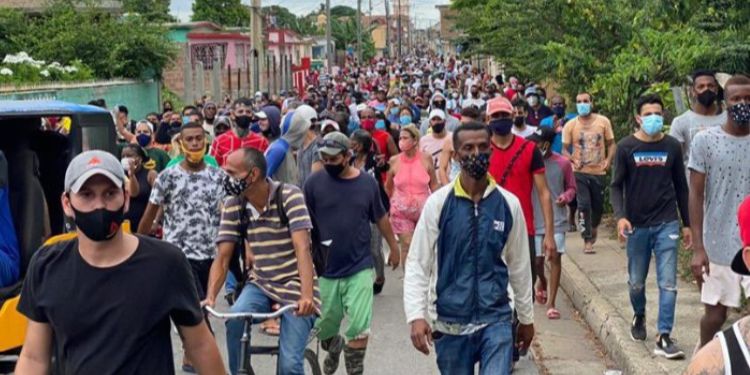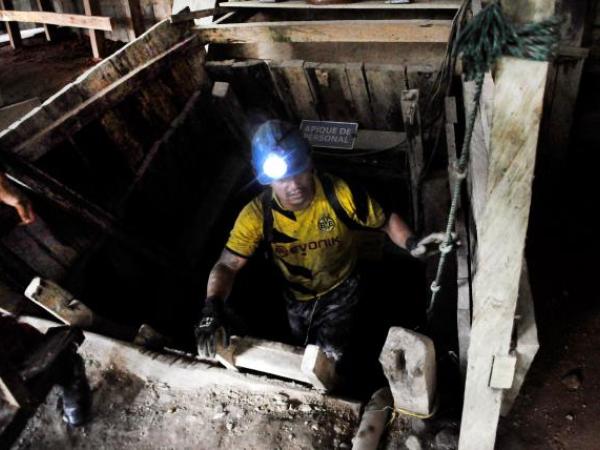LAS TUNAS, Cuba. — On July 23, 2019, precisely two years and 12 days before the demonstrations of July 11, 2021 (11), in a legal and political context different from the one we live in today in Cuba, we published on this site the article Pardon… And why not amnesty?referring to a note published by the official press regarding the pardon of 2,604 prisoners, as if pardon were a virtue of the regime and the 2019 Constitution and not a very old legislative practice.
That note said: “The Council of State in accordance with the new Constitution of the Republic, which among its postulates favors the social reintegration of persons deprived of liberty, taking into account requests from family members and in compliance with the policy established by the government Cuban for several years, agreed to pardon 2,604 sanctioned with effective sentences of deprivation of liberty.
The amnesty is a “law of forgetting”, but the pardon is a partial pardon that does not forgive more than the main sanction. To exonerate the accessory sanctions, among which are the deprivation of rights to elect or be elected, hold public, political or administrative positions, even to obtain a passport, the decree that grants it must state whether the pardon is total and definitive. , with which the civil liability for damages is exonerated as well as the criminal record in the Central Registry of Punished Persons is canceled. In this regard, in the aforementioned note we express: “Do not exaggerate. In Cuba, the pardon is not ‘in accordance with the new Constitution of the Republic’. In Cuban criminal law, codified by Spanish legislation, the pardon will be in force for 100 years; the Pardon Law, Law No. 19, was promulgated on August 15, 1919”.
Today, the circumstances are different, but the same question that we asked two years before the 11J took place haunts us: Pardon… And why not amnesty?
The number of those punished accused of the 11J demonstrations or other events that occurred before or after those protests, all labeled as “counterrevolutionaries” or “antisocial elements” to mask their status as political prisoners, is much higher, and remember the definition of crime According to the Spanish criminal expert Luis Jiménez de Asúa: “The evolutionary crime is, in short, the one that is perpetrated for altruistic reasons with the aim of hastening, in a more or less utopian way, social political progress.”
An old opinion on political crime in the circumstances of Cuba was founded by the jurist Eugenio Florián 136 years ago, at the First Congress of Criminal Anthropology held in Rome in 1886, when he upheld the motive criterion considering that, if the The purpose that the person who transgressed the legal order of the State was proposing was political, the crime was political as well. Accepting this thesis, crimes committed against property —for example— would not be such if the perpetrators were not moved by the profit motive of the stolen thing, but by just causes in which the stolen property had a use or caused damage.
I bring these concepts because there is an urgent need for the release of political prisoners, not only those who are currently in prison, but also those who are now in their homes, both in Cuba and in exile, with extra-penal leave, without have served their sentences. The regime has made these people potentially punished and incarcerated as long as they live, the years of the sentence of deprivation of liberty elapse or the criminal action or the imposed sanction prescribes, because, otherwise, whether we like it or not, it is not possible to extinguish the responsibility but only by pardon or amnesty, as conceptualized in article 59 of the current Cuban Penal Code.
Various criteria have been formulated on crime, pardon and amnesty, among which it is argued that accepting these procedures for the extinction of criminal responsibility is to recognize crimes that are not essentially crimes, but rather civic claims. Almost all of these criteria are influenced by precedents of failed amnesties where, due to a violation of international law and fundamental legal principles, on the one hand political prisoners and prisoners of conscience were released, while on the other, criminals who committed crimes against humanity were wrongfully exempted. These criteria have discouraged or led to skepticism constitutionally possible legal actions instead of promoting a citizen movement to achieve the freedom of all political prisoners.
At the beginning of this article, referring to the amnesty, we said that it was a “law of forgetting”, thus in quotation marks, because in reality in those laws the abandonment of the criminal action or execution does not mean “a clean slate”, according to occasions It has been said, nor does an amnesty express that the State assumes that it has made a mistake in sanctioning a group of people for the transgression of conduct classified as crimes in the Penal Code, which is one of the control tools of the State, and more in a regime like that of Cuba.
An amnesty granted by a “legislative power” that, by constitutional mandate, considers the Communist Party of Cuba (PCC) “unique” and at the same time “superior leading political force of society and the State” is not such. In no way can or should it be thought that, by amnestying prisoners convicted of 11J or others for political reasons, the regime expresses something like, we are wrong about you, we free you, you have no criminal record or administrative, political or civilians, are welcome to the socio-political life of the country.
To think that a totalitarian State, when granting an amnesty, allows civil liberties —which are not enjoyed by those who have not even been criminally sanctioned, but that is another matter— is like asking for pears from the elm tree. But, although it happened before in Cuba when serious human rights violations were covered up by law, it is possible to achieve the freedom of those who today are imprisoned for altruistic reasons. Denying them that right to freedom is not human either.
In the continuity of this article we will explore the ways to reach amnesty without this constituting an escape hatch for the true criminals.
OPINION ARTICLE
The opinions expressed in this article are the sole responsibility of the issuer and do not necessarily represent the opinion of CubaNet.
Receive information from CubaNet on your cell phone through WhatsApp. Send us a message with the word “CUBA” on the phone +1 (786) 316-2072, You can also subscribe to our electronic newsletter by giving click here.






